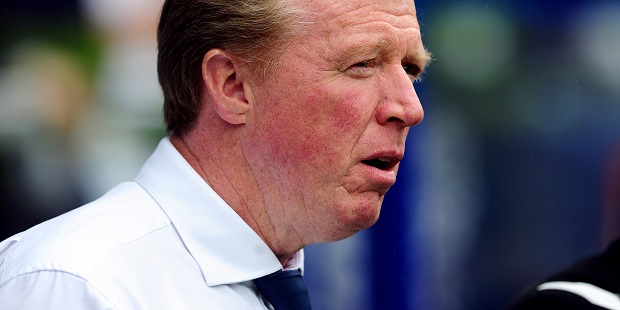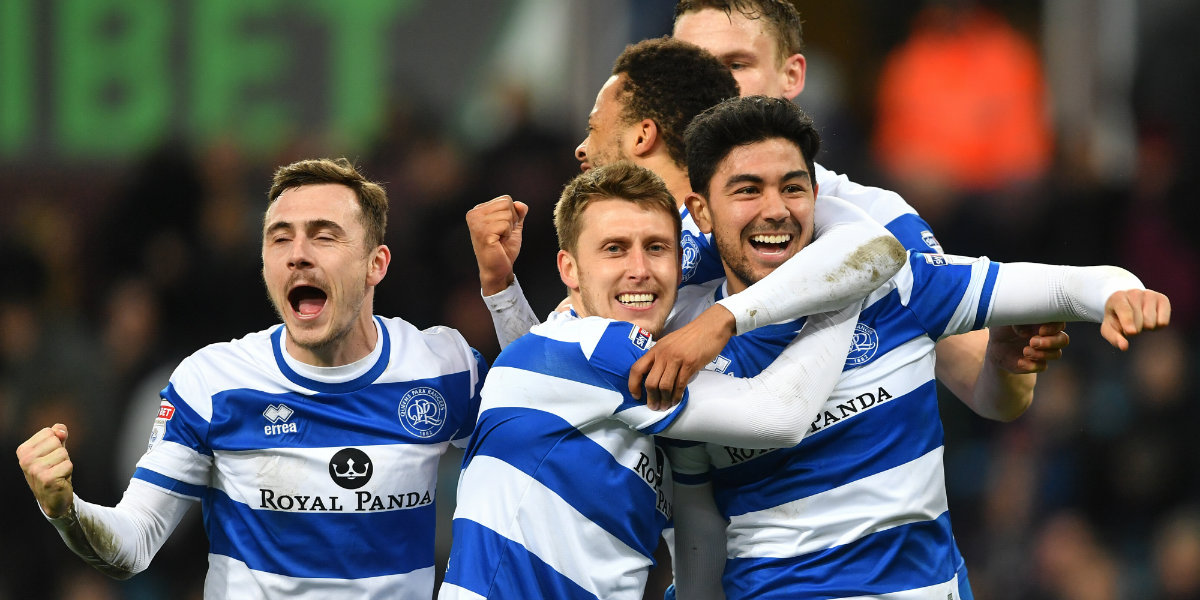McClaren’s key judgement calls as QPR boss – has he got them wrong?

More often than not, credit and blame dished out to managers is totally undeserved.
There are a host of circumstances and mitigating factors that lead to the events and results which make a manager either look good or bad.
They ride with the punches, rely on luck more than judgement much of the time, and rely on those around them – not just players – to do their jobs.
That is the case at every club and particularly at QPR, where the soap opera off the pitch has been a major factor in events on it for the best part of two decades, with a string of managers being unfairly judged as a result.
Often the link between outcome and a manager’s actual decision-making is very weak.
But the buck stops with them. They get the credit when things work out and the blame when they don’t – unless their excuses are believed.
A manager can only truly be judged fairly by looking at key decisions he and he alone is directly responsible for.
For example, for all Ian Holloway’s eccentricities, not to mention some horrendous performances and results, the key decisions he made in terms of signings and team selection before being replaced by Steve McClaren were arguably sound.
Before that, Jimmy Floyd Hasselbaink boldly insisted on an incredible intensity level in training, particularly during pre-season. His players looked out on their feet by September and he was judged by his bosses accordingly.
So what about McClaren and his key decisions since taking over as Rangers manager? After 10 games, it’s fair to now start assessing them.
Going for experience
McClaren has caused some consternation among fans by seemingly inheriting an emphasis on youth only to quickly tear up that blueprint and take the club back to targeting older, more experienced players.
However, there are some factors that shouldn’t be ignored here.
Rangers lost two experienced players in Nedum Onuoha and Jack Robinson, plus senior pros in James Perch and Jamie Mackie, when they left at the end of last season. So there was a void to fill and a valid reason why any Rangers manager would have felt the need to add experience to the squad as a matter of some urgency.

There is also room for debate about how good some of the much-vaunted QPR youngsters McClaren inherited actually are, or are likely to be once they’re passed the initial stage of playing on adrenaline.
McClaren would be justified to wonder about the likes of Osman Kakay and Ilias Chair based on what he has been so far. Paul Smyth, exciting to watch in spells, has performed poorly when given a chance this season, repeatedly giving the ball away before being substituted at half-time against Sheffield United. Bright Osayi-Samuel has been hit and miss and is still learning his trade.
More importantly, though, is the notion – and this was a factor in the club’s decision to axe Holloway even after last season’s promising signs – that young players coming into a side mid-season with enough points to be clear of danger is very different to them starting a season with no points on the board and the pressure very much on. What happened last season is not necessarily much to go on.
Plus, the decision to bring in experienced short-term cover for Darnell Furlong has been vindicated by the performances of Kakay and Angel Rangel since the latter’s arrival.
The formation
Changing formation is an important call by McClaren.
The system was only changed by Holloway last season when Furlong and others were fully fit.
The reluctance to do so before then was based on a belief that the team’s three best players were Josh Scowen, Massimo Luongo and Luke Freeman, and concerns that another system, especially 4-4-2, would lead to:
• Opposition teams too easily getting in on a back four that did not have two reliable centre-backs.
• Rangers being easily stretched and their midfielders being exposed for a lack of ‘legs’, whereas a three-man midfield avoids this and plays to their respective strengths.
• Freeman either playing wide, in a two-man midfield or just off the front where, based on his career previously, he would not be anywhere near as effective as when playing in a midfield three. Again, a lack of ‘legs’ was seen as the issue here.
• Limited wingers being crowbarred into the side at the expense of important assets Rangers had in central midfield/number 10 areas.
• Playing an outdated style of football opposing teams can easily deal with, especially if they have strong centre-backs happy to go up against two out-and-out strikers.
Based on the first 10 games, it’s clear those concerns were justified.
But it is only 10 games. Holloway, after all, presided over two six-game losing runs and was allowed some time to get it right. Under McClaren, Rangers have lost as well as won tight games which could have gone either way.

Not signing a proper holding midfielder
Holloway approached the end of last season feeling that, in order to pave the way for a change of formation and address some of the issues above, Rangers needed to bring in a proper holding player despite already having various options in midfield.
McClaren didn’t see it that way. Arguably that was the wrong call, given that Scowen and Luongo have both struggled in a two-man midfield and Rangers therefore found themselves looking for a midfielder as the deadline approached, eventually bringing in Geoff Cameron, who has looked sluggish so far.
Playing out from the back
This caused problems for McClaren’s defenders and especially keeper Matt Ingram during a dismal start to the season. A more pragmatic approach has been adopted since. Rangers are still struggling with aspects of McClaren’s style, but it’s early days. If the brief is to oversee a return to the ‘old QPR’ then a passing style is very much in keeping with that.
Loaning out Ryan Manning
This one looks awful, with Manning impressing for Rotherham – a rival to Rangers at the bottom end of the table.
But this decision was as much about Jordan Cousins as Ryan Manning.
Manning was behind Scowen, Luongo and Freeman but still an important part of the squad as the obvious stand-in – and one who had delivered, with goals and some very decent performances.
It was McClaren’s belief in Cousins, who has featured a fair bit this season, which directly led to the decision to let Manning go.

With Manning not involved, it is arguably in QPR’s as well as his long-term interests for him to be playing regular Championship football.
Rangers can – and surely will – recall him from his season-long loan in January. If they do and he impresses, it will no doubt be seen as proof of what a scandalous decision it was to loan him out.
But going into the QPR side fully fit and confident after a spell as Rotherham’s stand-out player is not the same as going into it after stewing in Under-23 games at Harlington.
The bottom line is that Manning, rightly or wrongly, was unlikely to play. So the decision to loan him out has some merit.
In terms of McClaren’s judgement, the issue is less about how Manning has performed for Rotherham than how Cousins has performed for QPR.
The answer is that he still flatters to deceive and recently got himself sent off in a game Scowen was fortunate not to also be dismissed in, when both were among the more experienced players in a side containing youngsters. That doesn’t reflect well on the manager.
That said, Cousins cost a seven-figure fee and was a stand-out player in the Championship for Charlton. It’s not unreasonable to believe he should be given a chance to make an impression after a series of injury problems.
And, again, it is only 10 league games into the season.
Eggs in one basket
Perhaps the judgement call which will really end up defining McClaren’s tenure is the holding out for loan signings of seasoned Championship strikers, which eventually led to the arrivals of Tomer Hemed and Nahki Wells.
It essentially involved Rangers, seriously hampered by FFP, looking to weather an early storm without signings and using all the money available to fund the big wages of two Premier League players on loan.

And at this point it still looks like it could go either way.
The two strikers have made a difference, with Hemed’s goal securing a much-needed win against Wigan.
But that game could have gone either way – and Hemed’s controversial winner is the only goal he and Wells have between them for the R’s so far.
By the end of this week, when Rangers have faced Reading and Derby, perhaps that will have changed and the outlook will be brighter.
It would still leave the question of where on earth QPR are going in the longer term, but Hemed and Wells delivering would at least keep the club safe this season.
The nightmare scenario involves one or both of them either getting injured or downing tools as poor results affect morale.
At the moment, it’s not yet clear whether McClaren has got this key judgement call right.
It’s also the case, incidentally, that he would have liked to bring in Chris Martin up front and George Thorne in midfield. Both played under McClaren at Derby but the Rangers hierarchy had doubts about their fitness levels.
Thorne is still at Derby and has not played this season, while Martin ended up being loaned to Hull, where he has made four appearances and not scored.
Based on how they have looked so far – and how Martin looked while on loan at Reading last season – QPR were right to wait for Hemed and Wells.
McClaren might argue, though, that some players perform under certain managers and he has got the best out of Martin in the past.

02/10/2018 @ 2:06 pm
David, I always love reading your articles. They shed light in areas that I might not otherwise see and thats a great thing to have in journalism 🙂
02/10/2018 @ 12:59 pm
yes, as far as Im concerned, he has. Cousins not up to it, Manning out on loan, Smithies gone for peanuts – need I continue?
On the other hand FFP plays a large part in all this, Had senior management put the financial brakes on during MH & HR reigns we probably would be up there with the best of them. Then theres the constant manager turn over, some good ones but most bad, Im beginning to think DofF is incapable of recognising a decent manager. So we are now funding the loanees with sale money – now I understand why Smithies went so cheap.